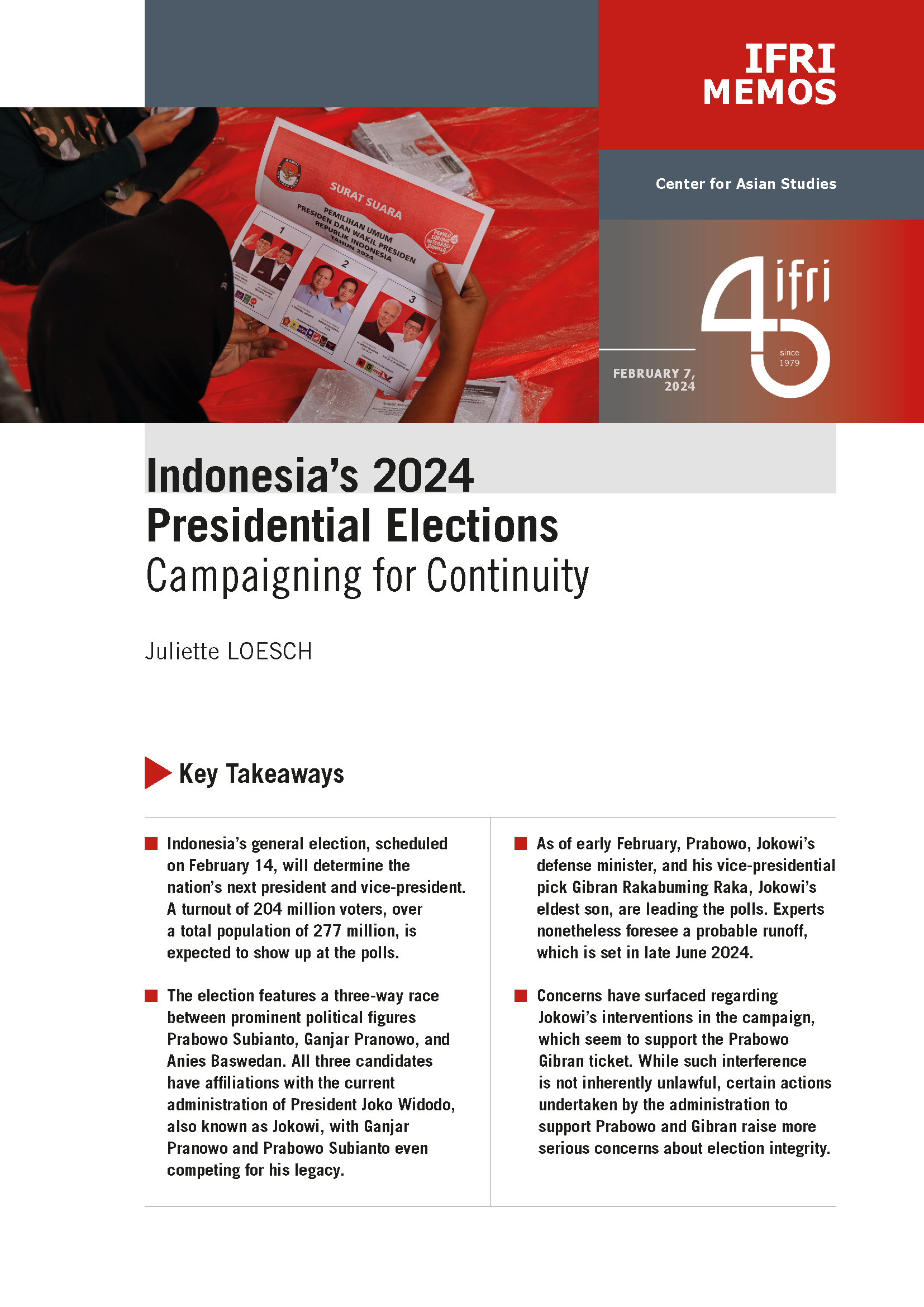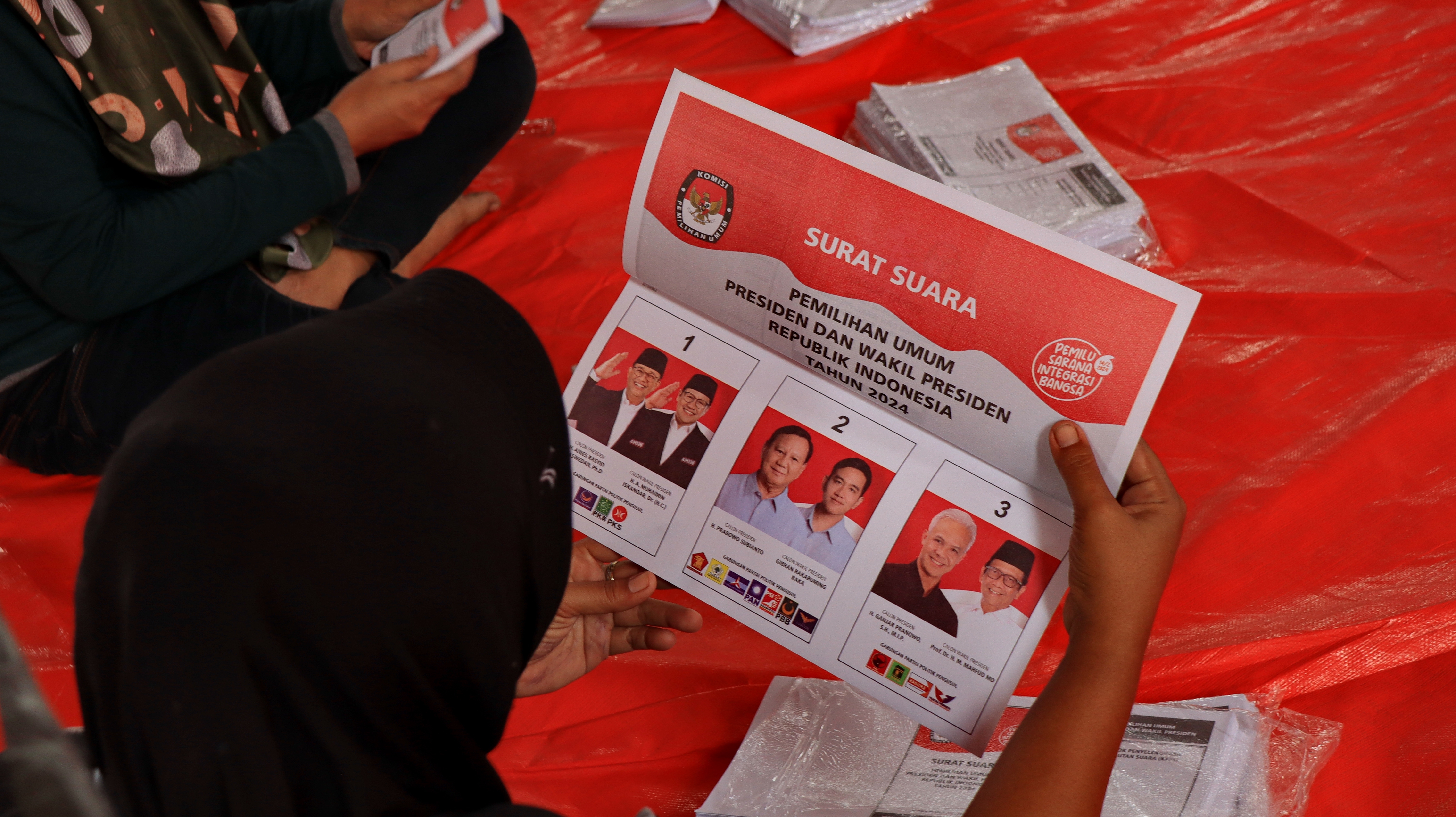Indonesia’s 2024 Presidential Elections: Campaigning for Continuity

Indonesia is gearing up for its next general election on February 14, with a potential runoff scheduled in late June. This major electoral process will determine the nation’s next president and vice-president since incumbent President Joko Widodo, also known as Jokowi, will step down after ten years in office in compliance with the constitutional limit of two terms.

Voters will also decide on nearly 20,000 representatives at the national, provincial, and district levels. Another provincial election is set for November this year, although discussions are currently unfolding in the Parliament to advance it to September. This proposed timeline has triggered concerns about possible interference from the current administration, given that the new one will only be appointed in October.
Indonesia’s general election will determine the nation’s next president and vice-president. A turnout of 204 million voters, over a total population of 277 million, is expected to show up at the polls.
The election features a three-way race between prominent political figures Prabowo Subianto, Ganjar Pranowo, and Anies Baswedan. All three candidates have affiliations with the current administration of President Joko Widodo, also known as Jokowi, with Ganjar Pranowo and Prabowo Subianto even competing for his legacy.
As of early February, Prabowo, Jokowi’s defense minister, and his vice-presidential pick Gibran Rakabuming Raka, Jokowi’s eldest son, are leading the polls. Experts nonetheless foresee a probable runoff, which is set in late June 2024.
Concerns have surfaced regarding Jokowi’s interventions in the campaign, which seem to support the Prabowo Gibran ticket. While such interference is not inherently unlawful, certain actions undertaken by the administration to support Prabowo and Gibran raise more serious concerns about election integrity.

Available in:
Regions and themes
ISBN / ISSN
Share
Download the full analysis
This page contains only a summary of our work. If you would like to have access to all the information from our research on the subject, you can download the full version in PDF format.
Indonesia’s 2024 Presidential Elections: Campaigning for Continuity
Related centers and programs
Discover our other research centers and programsFind out more
Discover all our analysesThe U.S. Policy Toward Taiwan Beyond Donald Trump: Mapping the American Stakeholders of U.S.-Taiwan Relations
Donald Trump’s return to the White House reintroduced acute uncertainty into the security commitment of the United States (U.S.) to Taiwan. Unlike President Joe Biden, who repeatedly stated the determination to defend Taiwan, President Trump refrains from commenting on the hypothetical U.S. response in the context of a cross-Strait crisis.

China’s Strategy Toward Pacific Island countries: Countering Taiwan and Western Influence
Over the past decade, China has deployed a diplomatic strategy toward the Pacific Island Countries (PICs). This strategy pursues two main objectives: countering Taiwan's diplomatic influence in the region and countering the influence of liberal democracies in what Beijing refers to as the "Global South."

Opening up the G7 to South Korea to Address Contemporary Global Challenges
The G7’s global influence has diminished as powers like China reshape international governance through initiatives such as BRICS and the Shanghai Cooperation Organisation (SCO). With the G7 now representing just 10 per cent of the world’s population and 28 per cent of global GDP, its relevance is increasingly questioned.
Expanding SPDMM as a pivotal institution in the Pacific – A French perspective
The South Pacific Defence Ministers’ Meeting (SPDMM) is the only forum that brings together defense ministers from the wider South Pacific — including Chile, which is hosting it for the first time. This heterogeneous group of countries with varying resources, capacities, and interests — Australia, Chile, Fiji, France, New Zealand, Papua New Guinea (PNG), and Tonga — are united by their shared determination to strengthen cooperation on maritime security and humanitarian assistance and disaster relief (HADR) activities.







